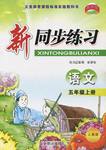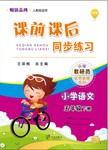题目内容
14.Daniel was born in New Orleans,LA.,in 1962,slow to walk and talk,and short.He was the tiniest in his class,but he developed a warm,outgoing nature and was popular with his peers(同龄人).And he became skillful at sports.Baseball gave him his earliest challenge.He was an excellent players in Little League.At graduation,the coach named Daniel the team's most valuable player.
His finest hour,though,came at a school science meeting.He entered an exhibit explaining how the circulatory system works.It was traditional,especially compared to(与…相比)the modern,computerized,blinking-light models entered by other students.My wife,Sara,felt embarrassed for him.
It turned out that the other kids had made their exhibits.As the judges went on their rounds,they found that these other kids couldn't answer their questions.Daniel answered every one.When the judges awarded the Albert Einstein Plague for the best exhibit,they gave it to him.
By the time Daniel left for college he stood six feet tall and weighed 170pounds.He was in superb condition,but he quit baseball for English literature.I was sorry that he would not develop his athletic talent,but proud that he had made such a satisfactory decision.
One day I told Daniel that the great failing in my life had been that I didn't take a year or two off to travel when I finished college.This is the best way,to my way of thinking,to broaden oneself.Once I had married and begun working,I found that the dream of living in another culture had disappeared.Daniel thought about this.After graduation,he worked as a waiter at college,a bike messenger and a house painter.With the money he earned,he had enough to go to Paris.
The night before he was to leave,I tossed in bed.I was trying to figure out something to say.Nothing came to mind.Maybe,I thought,it wasn't necessary to say anything.
28.How can we describe little Daniel?D
A.He was thin and tall.
B.He was slow in his study.
C.He was good at basketball.
D.He got on well with his classmates.
29.Why was Daniel's mother upset about his exhibit?A
A.Because it was not to the taste of the judges.
B.Because it was computerized.
C.Because it was designed by his father.
D.Because it was attractive.
30.How did the author feel about the major(专业)Daniel chose at college?B
A.Angry.B.Satisfied.C.Disappointed.D.Astonished.
31.What can we infer according to Paragraph 6?C
A.Daniel will study in Paris.
B.Daniel dropped out of college.
C.What the author said impressed Daniel greatly.
D.Daniel worked hard to pay off the money he borrowed.
分析 本文主要讲述了作者的儿子丹尼从出生到上大学之时的一些故事.
解答 28.D 细节题.根据文章内容,He was the tiniest in his class,but he developed a warm,outgoing nature and was popular with his peers(同龄人).And he became skillful at sports.小丹尼在班级里是最小的,但是他与同学朋友相处的极好.结合选项,故选D.
29.A 细节题.根据文章内容,His finest hour,though,came at a school science meeting.He entered an exhibit explaining how the circulatory system works.It was traditional,especially compared to(与…相比)the modern,computerized,blinking-light models entered by other students.My wife,Sara,felt embarrassed for him.丹尼参加了一个科学兴趣社.因为他的研究内容是血液系统的工作原理.这与现在的一些研究项目不同,我的妻子担心,小丹尼的研究不能的得到裁判的肯定.结合选项,故选A
30.B 细节题.根据文章内容,He was in superb condition,but he quit baseball for English literature.I was sorry that he would not develop his athletic talent,but proud that he had made such a satisfactory decision.丹尼上大学的时候放弃了打球而选择了英语文学,但我很骄傲他做了一个令人满意的决定.结合选项,故选B
31.C 推理题.根据文章内容,One day I told Daniel that the great failing in my life had been that I didn't take a year or two off to travel when I finished college.This is the best way,to my way of thinking,to broaden oneself.Once I had married and begun working,I found that the dream of living in another culture had disappeared.Daniel thought about this.After graduation,he worked as a waiter at college,a bike messenger and a house painter.With the money he earned,he had enough to go to Paris.在我对丹尼讲述了我的遗憾以后,丹尼在毕业以后选择了工作一段时间以后,用挣得的钱出门旅行,开拓视野;由此可知,作者的话,对丹尼影响很大.结合选项,故选C
点评 题目涉及多道细节理解题,做题时结合原文和题目有针对性的找出相关语句进行仔细分析,结合选项选出正确答案.推理判断题也是要在抓住关键句子的基础上合理的分析才能得出正确答案,切忌胡乱猜测,一定要做到有理有据.

 教学练新同步练习系列答案
教学练新同步练习系列答案 课前课后同步练习系列答案
课前课后同步练习系列答案| A. | The moment | B. | Before | C. | Till | D. | For |
| A. | whether | B. | that | C. | if | D. | why |